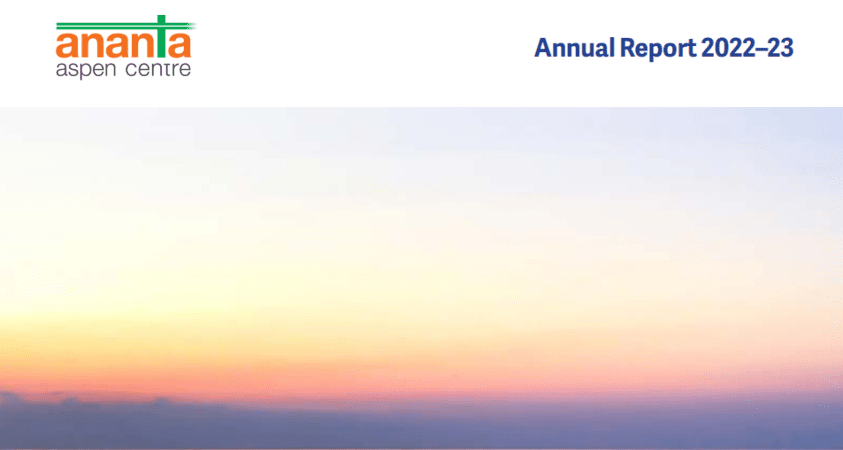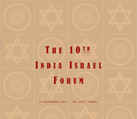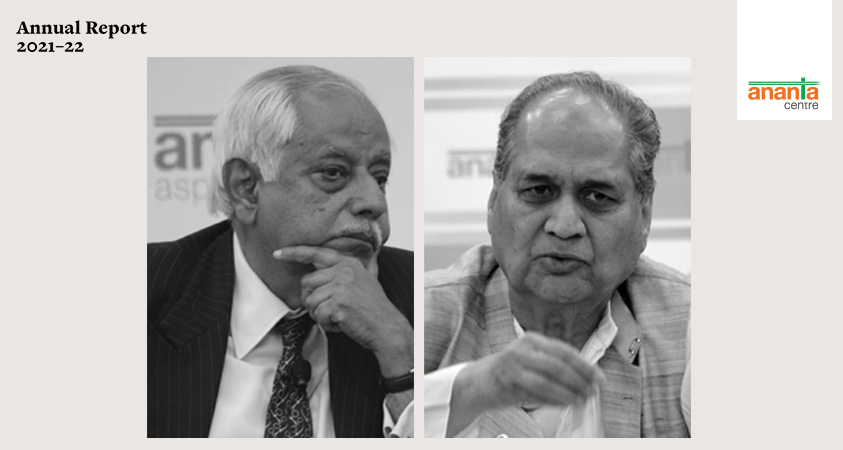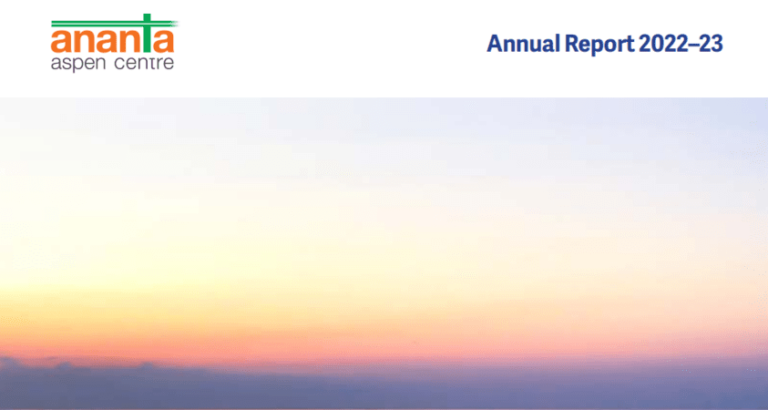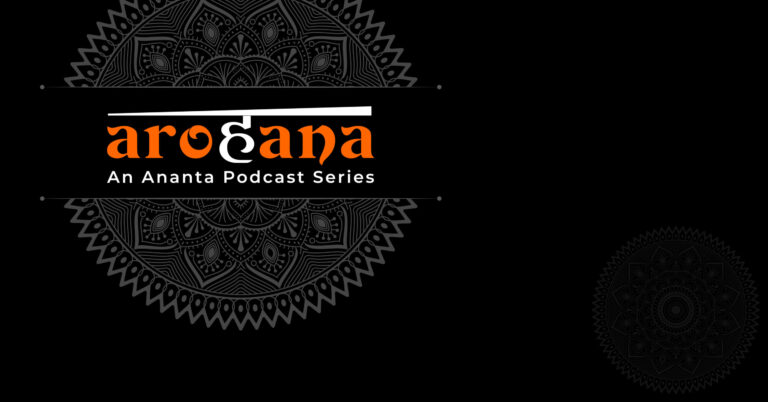IA) Political Developments: Covid-19 Pandemic
Regional Impact of Covid-19: Vaccination and Second Surge
In March 2021, two distinct and opposite trends were evident about the spread of the Covid-19 pandemic in the WANA countries. In overall terms, the region saw a doubling of the rate of infections which grew by 20.8% in March 2021 as compared to 10.3% over February 21. The death rate also inched upwards, albeit at a slower rate: to 9.6% from 8.1%. Thus the gradual decline in fresh cases visible over the past few months reversed itself with a vengeance. However, there was a slowdown in new cases in a small subset of countries (mainly Israel and some GCC states). These different trajectories among WANA countries were more noticeable in the number of deaths recorded during the month going to show that the vaccinated had higher survival rates. The details are in the table below:
Source: Johns Hopkins University Coronavirus Resource Center;
Legend: =: Nearly same since last month #: Grew ~10% since last month; *: Grew ~20% since last month; ^: Grew ~50% since last month.
Covid Related developments in Individual WANA Countries:
- From mid-March, Israel began the gradual relaxation in its pandemic related restrictions, including the issuance of the “Green Pass” system. It also entered into a “Vaccine Alliance” with Austria and Denmark.
- On March 8, Syrian President Bashar Al-Assad and his wife Asma tested positive for Covid-19 and went into isolation.
- Jordan health minister was sacked on March 13 following the death of 7 Covid-19 patients due to oxygen shortage at the New Salt Hospital.
- Turkey unveiled plans to vaccinate 50 mn of her 83 mn citizens with Sinovac before the next autumn. Even as the country continued to see a surge in new infection during the month President Erdogan ruled out any lockdowns
- On March 27, Julphar, a UAE pharmaceutical company, announced a deal to manufacture the Sinovac vaccine.
- Iran commenced the human trials on its third Covid-19 vaccine from March 16. The authorities warned the citizens of the possible fourth wave of the pandemic during Nowruz celebrations.
IB) Political Developments
Iran:
Behind-the-scene diplomacy to sequence the US joining of the JCPOA and Iran returning to her commitments under it continued during the month without any breakthrough being visible. This exercise was mostly conducted through E3 countries (Britain, Germany and France) and took place against the backdrop of Iran continuing to ratchet up its uranium enrichment using more sophisticated IR-4 centrifuges at Natanz facility – as steady news leaks from IAEA mentioned. Iranian leadership’s public pronouncements accused the Biden administration of making no serious efforts (Rouhani; March 31), lacking credibility (Supreme Leader; March 21) and time running out for the US (Javad Zarif; March 15). On its part, Biden’s team remained tight-lipped, only confirming that indirect diplomacy was underway (US NSA; March 12). US not only continued with the entire Trump-era sanctions regime but also blacklisted two Iranian officials on human rights violations (March 10) and charged 10 Iranians evading the US sanctions to the tune of $300 mn(March 20).
Comment: The negotiations were made even more arduous by the respective domestic opposition to the proposed deal: The Trump-ites and pro-Israel lobby made no secret of their disapproval of the Biden intention to rejoin the JCPOA. On other hand, Rouhani Presidency, in its last quarter, faces an overwhelming radical majority in the Majles hell-bent upon denying it the historic claim to JCPOA’s positive legacy for Iran.
Chinese Foreign Minister Wang Yi arrived in Iran on March 26 for a two-day visit. A highlight of the visit was the signing of a high profile 25-year bilateral cooperation agreement between him and his Iranian counterpart Javad Zarif. He was also received by President Rouhani and Supreme Leader’s Representative Ali Larijani. In his public pronouncements, Yi said that the bilateral had now reached the strategic partnership level and China seeks to comprehensively improve them. He also welcomed the Biden administration’s declared intention of rejoining the JCPOA.
Comment: Chinese FM’s Iran visit seemed well-timed to serve optics for both sides each of which is under the US sanctions and facing ructions from several of their respective neighbours. Officially, it was to mark the golden jubilee of the establishment of their diplomatic relations, but the context was very much into the present tense. China, a backbench member of the JCPOA, carefully nuanced its support for Iran, albeit in anodyne terms. The bilateral cooperation agreement, in the works since President Xi’s visit in 2015, was defrosted up for signing just before the US sanctions might be phased out – reopening the floodgates to Iran. With details were held back, at this stage, the document appeared more as a statement of intentions to scale up the economic ties than any concrete to-do target list. By linking the agreement to the Belt and Road Initiative, China sought to package it more palatably for the regional rivals of Iran. This balancing act was also evident by inclusion in this Gulf tour of brief stopovers in the UAE (March 27-28), Bahrain (March 29) and Oman (March 29) and his interview to Saudi Arabia’s al-Arabiya TV Channel in which he unveiled a “Five-point Initiative on Achieving Security and Stability in the Middle East” – which is a carefully drafted check-list of something-for-everyone amalgamation of various longstanding geopolitical contradictions in the region. (Further Reading: “Wang Yi Proposes a Five-point Initiative on Achieving Security and Stability in the Middle East” March 26 2021; http://go.pardot.com/e/827843/eng-zxxx-662805-t1864767-shtml/mhhvv/213228943?h=PNoTckGpK4cnT5mNBff7Wkd86DXwgbQvHqZOF2BzRwU)
The shadowy attacks by Iran and Israel on each other’s maritime assets continued during the month. An Iranian ship Shahre Kordwas hit off the Syrian coast on March 12. Iranian investigators suspected Israeli involvement. Some other reports hinted at Israeli action to damage three Iranian ships in the Red Sea. On the other hand, MT Lori, an Israeli owned but Liberian flagged container ship was damaged on March 25 in a missile attack in the Western Indian Ocean on its journey from Tanzania to India. Iranian involvement was suspected but denied by Tehran. The ship managed to reach Mundra port in Gujarat under its own power. In a new low in this game, on March 2 the Israeli Minister for Environment blamed Emerald, a Panama flagged oil tanker carrying Iranian crude to Syria of deliberately spilling nearly 1000 tons of oil of the Israeli coastline on Feb 1-2. The alleged act of “environmental terrorism”, blamed on Iran, caused major damage to the shorelines in Israel, Gaza and Southern Lebanon.
Israel:
The Knesset elections, fourth in less than two years, held on March 23 also failed to yield any clear winner. Though PM Benjamin Netanyahu’s Likud continued to be the largest party in the 120-seat parliament, his supporting block had a total of 52 seats, nine short of the majority. On the other hand, the anti-Netanyahu bloc had 57 seats with 11 seats held by uncommitted parties. While protracted horse-trading among various political parties was expected, the observers did not rule out a fresh election by August 2021.
On March 3, the Prosecutor of the Hague-based International Criminal Court (ICC) opened an investigation into alleged crimes committed in Palestinian Territories since June 13 2014 when a particularly bloody conflict between Hamas and Israel began. Although “an independent, impartial and objective investigation without fear or favour” was promised, the move was condemned by Israeli PM as a case of “anti-Semitism.” The US, too, rejected the move. The Palestine Authority and Hamas welcomed it as an end to the “Israeli impunity.” Subsequently, on March 20, the ICC sent formal notifications to Israel and the PA.
On March 8, Al-Jazeera and Israeli paper Haaretz revealed that the Bangladesh Intelligence Services acquired the mobile phone interception technology from an Israeli company in 2018 even as the two countries did not have diplomatic relations.
Yemen:
On March 22, Saudi Arabia’s Foreign Minister Prince Faisal bin Farhan Al-Saud unveiled a new peace initiative to end the hostilities in Yemen. It comprised of a nationwide ceasefire and limited opening of air and maritime links for the al-Houthi controlled areas. Al-Houthis promptly rejected the offer as nothing new asserting that any such initiative must include complete lifting of the blockade on Sana’a airport and Hodeidah seaport. The group, however, expressed its readiness to continue the ongoing peace negotiations with the Saudis, the United States and mediator Oman.
Comment: Saudi-led coalition’s military involvement in Yemen completed six-year on March 26 2021. Despite air and sea dominance and overwhelming technological superiority over their al-Houthi enemies, the Coalition has not been able to able to defeat them on the ground. Al-Houthis have shown considerable grit and innovation to wage an asymmetric war gaining some territory and inflicting damages on Saudi Arabia by drone and missile attacks. In the meantime, Riyadh’s Coalition partners have lost interest in waging the war of attrition, and the Saudi supported Yemen’s internationally recognised government has suffered dissensions. Apart from getting boxed into an expensive and unwinnable conflict, Saudi authorities have also to contend with the adverse public relations fallout of the contemporary world’s worst humanitarian disaster in Yemen that has caused death to over 233,000 and food insecurity to 16 mn. Further, unlike its predecessor, the Biden administration has not only mounted pressure on Riyadh to end the conflict, but it has also removed the tag of terrorism from al-Houthis. Washington also appointed Timothy Lenderking, a veteran diplomat, as the special envoy for Yemen who has been in touch with al-Houthis through Oman. Against this backdrop, the latest Saudi peace initiative appears to be an opening gambit aimed at both testing the waters and gaining higher moral ground. (Further Reading: “Saudi Arabia is struggling to end its war in Yemen” The Economist, Mar 27th 2021; http://go.pardot.com/e/827843/ggling-to-end-its-war-in-yemen/mhhvx/213228943?h=PNoTckGpK4cnT5mNBff7Wkd86DXwgbQvHqZOF2BzRwU)
An UN-sponsored Pledging Conference for humanitarian assistance in Yemen held on March 1 yielded $1.7 bn – a figure described as disappointing by the UN Secretary-General. Saudi Arabia contributed $430 mn, the largest share.
The month was punctuated by sporadic drone and missile attacks by al-Houthis against Saudi targets located in Ras Tanura, Jeddah, Dammam, Asir, Jizan, Abha, Khamis Mushat, Riyadh. While many of the attacks were aimed at oil installations, there was no report of any major disruptions in this vital sector.
On March 2, the US blacklisted two al-Houthi high ranking military officers for procuring weapons from Iran.
Libya:
Abdulhamid Dbeibeh was sworn in as the Interim Prime Minister of Libya on March 15 at Tobruk following endorsement of the proposed government by the National Parliament by 130-2 vote on March 10 in Sirte. The Government of the National Accord led by PM Fayez al-Saraj ceded power to the new set up on the next day. Although Libyan National Army (LNA) leader Gen Khalifa Haftar remained equivocal about the change, his administration officially handed over power to the Interim Government on March 23. Welcoming the proposed new setup at helms in Libya, the UN Security Council, endorsed Mr Dbeibeh’s call for all foreign mercenaries – estimated at 20,000 – to leave the country. Some reports indicated that Syrian militants, reportedly brought in by Turkey, were leaving Libya.
Comment: The interim setup, now somewhat grandly called the Government of National Unity (GNU), came into being as the country marked a decade of the devastating civil war that achieved very little except the overthrow of Muammar Qadhafi’s despotic regime. The strife turned a whimsically run but prosperous petro-state into a dysfunctional society riven not only by its internal tribal divisions but also by the external forces with oil wealth in their cross-wires. The GNU is the first serious attempt to turn the fratricidal tide back for over five years and can be seen as a tactical victory of hope over angst accumulated since 2011. A formidable obstacle course awaits the GNU as it girdles up to hold the country’s first free election before the year-end. It has to re-establish some semblance of order over the fractious country divided into fiefdoms, establish its popular credibility, restore the economy, rein in the various foreign influences and hold the general elections with the results acceptable to all sides. Its success would nothing less than a miracle!
On March 17 President Kais Saied of neighbouring Tunisia became the first Head of State to visit Tripoli after the installation of the new government.
Turkey:
Turkish Presidency said on March 9 that the US refusal of export clearance for the LHTEC engines had blocked the deal to supply 30 ATAK T-129 Turkey-built helicopters to Pakistan. The $1.5 bn deal was initially signed in 2018 but has not been implemented due to the US refusal. (Further Reading: “US blocks delivery of Turkish gunships to Pakistan” by Anwar Iqbal, Dawn, March 10 (Further Reading: “US blocks delivery of Turkish gunships to Pakistan” by Anwar Iqbal, Dawn, March 10 2021; http://go.pardot.com/e/827843/news-1611685/mhhvz/213228943?h=PNoTckGpK4cnT5mNBff7Wkd86DXwgbQvHqZOF2BzRwU)
During the month, Turkey continued to try mending ties with its estranged partners. It resumed contacts with Egypt which were broken for over seven years since the Egyptian military overthrow of the Muslim Brotherhood government in 2013. Ankara also proposed hosting Afghan peace talks in April. It managed to dodge the threat of economic sanctions at the EU Summit on March 25 over Ankara’s aggressive posturing against Greece and Cyprus. While expressing readiness for trade talks with Turkey, the EU leaders also hinted at possible economic sanctions on Turkey. They were also expressed concern at Ankara infringing human and women rights.
On March 18, pro-Kurdish Party HDP – The third largest in Turkish Parliament – was banned on technical grounds allegedly to remove a strong competitor of the ruling AKP in the forthcoming elections. However, on March 31 a Turkish court blocked the move on procedural grounds. The ban was also criticised by the EU and the US. (Further Reading: “As global markets and allies reel, Turkey’s Erdogan looks inward” Reuters, March 22, 2021;http://go.pardot.com/e/827843/rdogan-looks-inward-2021-03-22/mhhw2/213228943?h=PNoTckGpK4cnT5mNBff7Wkd86DXwgbQvHqZOF2BzRwU)
Palestine:
On March 10, Yahya Sinwar was re-elected as leader of Hamas’s political wing in the Gaza Strip for a second four-year term. He is a former member of the group’s armed wing who spent more than 20 years in an Israeli prison after being convicted of abducting and killing two Israeli soldiers. He was released in a 2011 prisoner swap. Ismail Haniya, Hamas’s overall leader, congratulated Sinwar on his re-election.
Nasser al-Qudwa was dismissed from Fateh Central Committee (FCC) on March 11 following his decision to run a separate list for May 22 general election for Palestinian Authority.
Comment: Nasser al-Qudwa’s defection and subsequent expulsion from FCC was the first and hitherto most serious split since the departure of Mohammed Dahlan nearly a decade ago. Al-Qudwa, 67, is a nephew of iconic Palestinian leader Yassir Arafat and was in FCC since 2009. He has also served as Palestine’s Foreign Minister and PR to the UN. Al-Qudwa’s split from al-Fatah is likely to complicate the calculations of the 85-year old al-Fatah leader Mahmoud Abbas, current PA President, not only for the May 22 legislative elections but also for his own re-election at the next Presidential polls on July 31.
Syria:
On March 30 the UN and the EU hosted a donors’ conference for humanitarian assistance for Syrian refugees estimated to number 24 mn within Syria as well as abroad. While the UN sought assistance worth $10 bn, the conference yielded only $6.4 bn. The main donors were: Germany ($2.04 bn), the US ($600 mn), the EU (Euro560 mn) the UK ($281 mn) and Qatar ($100 mn).
SDF, the Kurdish militia, raided the al-Hol camp in north-eastern Syria housing 60,000 former ISIS members and their dependents to arrest activists engaged in resuscitating the Islamic State militia.
Syrian government granted one month’s salary to its employees, including soldiers, to compensate them for the high cost of living due to a precipitous fall in the value of the national currency. This was the third such stimulus since October 2020.
(Further Reading: Ten years of war have broken Syria into pieces, The Economist Mar 13; http://go.pardot.com/e/827843/-have-broken-syria-into-pieces/mhhw4/213228943?h=PNoTckGpK4cnT5mNBff7Wkd86DXwgbQvHqZOF2BzRwU)
Kuwait:
On March 3, Emir Sheikh Nawaf Al Ahmad Al Sabah swore in a new cabinet under Prime Minister Sheikh Sabah Al-Khaled Al Hamad Al Sabah. The reshuffled cabinet replaced four ministers in the outgoing cabinet whose appointments were widely opposed in the parliament.
Arab League:
On March 3, the outgoing Secretary General Ahmed Aboul Gheit, 78 year old Egyptian diplomat, was reappointed for his second five year term.
Iraq:
Pope Francis, 84, began a three-day visit to Iraq on March 5 largely as a gesture of support for the country’s beleaguered Christian community whose numbers have shrunk from 1.6 mn to 300,000 during the past two turbulent decades due to mass persecutions by al-Qaeda and ISIS as well as emigration. The Pope was received by the Iraqi President, Prime Minister and Grand Ayatollah Ali Sistani. He also attended the mass in Baghdad, Mosul and Ur.
A rocket attack al-Asad airbase on March 3 led to the death of a US civilian contractor.
(Further Reading: “{Iraqis are getting fed up with Iran: Trouble with the neighbours”, The Economist, Mar 27 2021; http://go.pardot.com/e/827843/s-are-getting-fed-up-with-iran/mhhw6/213228943?h=PNoTckGpK4cnT5mNBff7Wkd86DXwgbQvHqZOF2BzRwU)
Lebanon:
The ongoing political stalemate in the country continued despite President Aoun asking Prime Minister-designate Sa’ad al-Hariri on March 17 to either form a cabinet or step down. Sa’ad al-Hariri, also a former PM, designated to the post in October 2020, has failed to get the support of long-entrenched political oligarchs for forming a technocratic cabinet. Meanwhile, the country continues to be ruled by a caretaker PM Hassan Diab, who threatened to quit on March 6.
Algeria:
On March 11, Algerian President Abdelmadjid Tebboune announced that the legislative elections would be held on June 12 under the new constitution. The national parliament was dissolved last month.
Comment: A popular uprising led by al-Hirak that ousted the 20-year rule of President Abdelaziz Bouteflika in 2019 has continued to demand replacement of the entire FLN-ALN old-guard (aptly called le pouvoir or “The Power”), which had ruled Algeria in the name of the liberation war against French colonialists over six decades ago. Mr Tebboune, himself a member of the old guard, was appointed by the country’s Armed Forces. He has sought to deflect the popular disapprobation by an anti-corruption campaign and by ushering in a new constitution through a poorly attended referendum. Now, by setting a date for parliamentary elections, President Tebboune seems to have taken the logical next step which nevertheless entails a calculated risk as the event could re-ignite the popular sentiments against the “business as usual politics” in Algeria.
Jordan:
On March 7, Prime Minister Bisher al-Khasawneh reshuffled his cabinet to bring in six new ministers – aimed at accelerating Jordan’s post-Covid economic recovery along with IMF’s $1.3 bn 4-year programme. The reshuffle followed the parliamentary passage of a 9.9 bn dinar ($14 bn) budget tailored to maintain fiscal prudence, ensure financial stability and rein in a record $45 bn public debt.
United Arab Emirates:
Israeli Prime Minister Benjamin Netanyahu’s announced a postponement of his landmark visit to the United Arab Emirates from March 11 because Jordan delayed granting overflight rights drew a rare rebuke from Amman over a contested Jerusalem holy site. Later on March 18, the Israeli media also reported that the UAE had suspended the Abu Dhabi Summit with Israel angered by Israeli PM Netanyahu’s public claim in a campaign rally that the Abu Dhabi crown prince Mohammed bin Zayed had assured him of an immediate investment of up to $10 bn into the country.
Saudi Arabia:
On March 18 Saudi Arabia implemented several labour reforms benefitting the expatriate workers. These included the abolition of the Kafala (Sponsorship) system, exit authorisation. Critics however maintain that the abuses will continue as long as work and residence visas are tied to a sponsor.
On March 22, Kingdom prohibited its men from marrying women from Pakistan, Bangladesh, Chad and Myanmar. No reasons were given for this move.
The arrest of 241 persons for various corruption-related charges was disclosed on March 15.
Egypt:
Thirty-one Western countries, including the United States, issued a joint statement on Egypt on March 12, the first since 2014, which called on Cairo to lift curbs on freedoms of expression and assembly.
Taiwan-registered South Korean mega-containership Ever Given gave Suez Canal a 7-day nightmare by running aground on March 22 blocking both channels of the world’s busiest waterway. By the time the 224,000 ton 400-meter long tanker could be released on March 29, a backlog of nearly 400 ships had collected on both sides. The Suez Canal Authority held back the ship seeking approximately $900 mn in damages.
Comment: A week-long closure of the Suez Canal, through which nearly a tenth of global sea-borne trade passes on nearly 19,000 ships annually, was yet another reminder of the choke-point economy vulnerabilities of the globalised world. It also highlighted both Egypt’s geo-economic importance and her much-delayed plan to expand the vital waterway.
Blue Nile:
The dispute between Ethiopia and each of Sudan and Egypt over the Grand Ethiopian Renaissance Dam (GERD) on the Blue Nile continue to generate more heat than light during the month. During his visit to Sudan on March 6, Egyptian President Abdul Fattah al-Sisi asked for greater (international) pressure on Ethiopia to resolve the GERD related differences with the two lower riparian countries. Sudanese PM Hamdok’s visit to Cairo on March 12 too was centred on this issue. Three days later, Sudan formally asked for 4-party mediation by the UN, AU, the EU and the US. Subsequently, Khartoum also sought mediation by the UAE on its dispute with Ethiopia over GERD and the bilateral border. Later on March 30, al-Sisi publicly warned that Ethiopia risked “unimaginable instability” unless it agreed to a legally binding agreement over operational issues of the GERD.
Sudan:
Gen Abdul Fattah al-Burhan, head of the Sudanese Sovereign Council and SPLM-N Rebel Militia Leader Abdelaziz al-Hilu signed a declaration of principles on March 28 in Juba, capital of South Sudan. The document was to pave the way for their peace talks.
Qatar:
The country’s landmark Minimum Wages Act came into force on March 20, one year before FIFA World Cup in Qatar. It was expected to benefit over 400,000 expatriate workers. It prescribes a minimum monthly wage of QR 1000/- ($ 275/-) excluding food and housing.
II) Economic Developments
Oil Related Global Developments:
- OPEC+ Ministerial meeting on March 4 decided to extend the existing oil output cuts for another month till April 2021. Saudi Arabia’s additional voluntary cut of 1 mbpd was extended indefinitely. The production ceilings for Russia and Kazakistan were raised marginally by 130,000 bpd and 20,000 bpd respectively. This unexpected decision to keep the production cuts led to a rally in the oil price with Brent crude crossing $69/barrel – its highest value since January 2020. (Further Reading:”Oil markets prepare for lofty prices and restrained supply”, The Economist, Mar 8th 2021; http://go.pardot.com/e/827843/y-prices-and-restrained-supply/mhhw8/213228943?h=PNoTckGpK4cnT5mNBff7Wkd86DXwgbQvHqZOF2BzRwU
- In 2020, Saudi Arabia overtook Russia as the largest supplier of crude to China. The Saudi supplies to China ran at 1.86 mbpd during February 2021.
- From March 29, UAE’s ADNOC began offering its Murban crude futures ex-Fujairah in the Gulf of Oman. This would be the first time a Gulf crude would have its own benchmark. If successful, it could be a trend-setter for other Gulf crudes. (Further Reading: “Abu Dhabi wants to revolutionize how the Middle East sells oil”, Anthony Di Paola, Bloomberg, March 28 2021; http://go.pardot.com/e/827843/-sells-oil-11616923665324-html/mhhwb/213228943?h=PNoTckGpK4cnT5mNBff7Wkd86DXwgbQvHqZOF2BzRwU)
- On March 26 Aramco declared its net profit in 2020 at $49 bn, down 44.4% over the previous year. However, it promised to deliver a dividend of $75 bn, as already committed. Most of this amount would go to the Saudi government, its main shareholder.
Following Economic Developments Took Place in Individual WANA Countries:
- On March 1, Turkey claimed that her economy grew by 1.8% during 2020, the highest among G20 countries including China, in a pandemic devastated world. This was mainly due to 5.9% y/y growth during Q4/20 as the cheap and plentiful credit spurred recovery. On the flip side, it resulted in lower Lira and 15% inflation. According to the IMF, Emerging and Developing Economies, taken together, contracted by 2.4% in 2020.
- On March 20, President Erdogan sacked Central Bank Governor Naci Agbal two days after he raised the bank rate by 2% to 19% to curb inflation. This move angered the President who believes, against the conventional economic wisdom, that high rates cause inflation. The Governor, appointed only last November, had raised the bank rate by 8.75% during his five-month tenure. The episode caused a major swing in the value of the Lira. (Further Reading: “Turkey’s economic woes should be a warning for other countries” The Economist, Mar 25 2021; http://go.pardot.com/e/827843/-a-warning-for-other-countries/mhhwd/213228943?h=PNoTckGpK4cnT5mNBff7Wkd86DXwgbQvHqZOF2BzRwU)
- On March 30, Crown Prince Mohammed bin Salman of Saudi Arabia launched a $1.3 tn investment plan till 2030. It was part of a $3.2 tr “Shareek” (Partner) project under which Aramco and Sabic would promote the country’s private sector to raise its contribution to 65% of the national GDP.
- There were signs that Riyadh’s strategy to incentivise the MNCs to shift their regional headquarters to Riyadh – currently mostly located in Dubai – was yielding positive results. According to Saudi sources, although the strategy takes effect only in 2024, at least 24 international firms had signed agreements to establish main regional offices in Riyadh. These include PepsiCo, Schlumberger, Deloitte, PwC, Tim Hortons, Bechtel, Robert Bosch and Boston Scientific and India’s Oyo Hotels.
- On March 26, Sudan announced that it had settled its three-decade-old debts to the World Bank, thereby moving closer to a relief package of total $56 bn debts owed to the international financial institutions. It did so after availing of a $1.15 bn bridging loan from the US government. The move meant Sudan could now access nearly $2 bn in grants from the Bank’s International Development Association (IDA). The Sudanese government said $635 mn would be immediately available for budget support and welfare spending.
- On March 9, the Tax Justice Network (TJN) put the UAE at 10th rank among tax havens used by international companies to minimise their tax liabilities. According to TJN, the multinationals rerouted over $218 billion of foreign direct investment to the UAE to save taxes – a rise of the financial activity by almost 180%. Relevant to note that following the recent criticism by the Financial Action Task Force for the UAE’s laxity in handling money laundering, the country recently approved the creation of a new government office to tackle money laundering and terrorist financing.
III) Bilateral Developments
- On March 10, Prime Minister Shri Narendra Modi had a telephone conversation with Saudi Crown Prince Mohammed bin Salman.
- India’s Gandhi Peace Prize for 2019 was conferred upon the late Sultan Qaboos of Oman on March 22.
- Media reports around March 22 spoke of the UAE having quietly brokered Indo-Pakistan peace moves. (Further Reading: “Secret India-Pakistan Peace Roadmap Brokered by Top UAE Royals” by Sudhi Ranjan Sen, Bloomberg, Mar 22 2021; http://go.pardot.com/e/827843/map-brokered-by-top-uae-royals/mhhwg/213228943?h=PNoTckGpK4cnT5mNBff7Wkd86DXwgbQvHqZOF2BzRwU )
- On March 10, EAM Dr S. Jaishankar and his Kuwaiti counterpart Sheikh Ahmed Nasser al-Mohammed Al-Sabah co-chaired a session of the Joint Commission in New Delhi. The bilateral trade stood at $10.86 bn in FY 2020 with Kuwait being the tenth biggest supplier of crude to India. Indians in Kuwait number around 641,000 making them the largest expatriate community.
- In a statement to Reuters on March 5, Indian Minister of Ports and Shipping Shri Mansukh Mandaviya expected the start of full-scale operations at Iran’s Chabahar port by the end of May 2021.
- Oil Matters: India’s fuel consumption during February 2021 fell by 4.9% y/y, but the LPG consumption rose by 7.6% during the month. India imported 3.92 mbpd of oil in February, a decline of 18% from the previous month At the same time, the crude imports from the US rose 48% during February to 545,300 bpd, making it India’s second-largest supplier with a 14% market share. While Iraq (867,500 bpd) continued to be India’s largest supplier, the imports from Saudi Arabia fell 42% y/y to 445,200 bpd and its rank fell to fourth place. Imports from Nigeria (472,000 bpd) rose to make it the third-largest supplier to India. These changes preceded India’s regret on March 5 of OPEC+ decision to cut oil production to artificially support the higher oil prices as it could threaten the consumption-led recovery in consuming countries. Media reports indicated that India subsequently asked her oil importers to further diversify the crude supplies.
- A Morgan Stanley note on March 22 revealed that Saudi Aramco remained interested in acquiring 20% stakes in Reliance Industries’ Oil-to-Chemicals (O2C) business.
- Indian Air Force participated, for the first time, in a multinational aerial exercise title “Desert Flag” held at the UAE’s Al-Dhafra airbase in UAE during this month.
- On March 17 Indian Oil and Phinergy, an Israeli new energy start-up company entered into a joint venture agreement to manufacture in India aluminium-air/zinc-air battery systems, fuel cells and indigenous hydrogen storage solutions for promoting green mobility. The JV ceremony was witnessed by India’s Minister of Petroleum and Natural Gas and Israeli Minister of Energy. Maruti Suzuki and Ashok Leyland each also signed a letter of Intent with the incipient JV.
………………………………………………………………………………………………
(The views expressed are personal)
………………………………………………………………………………………………




















